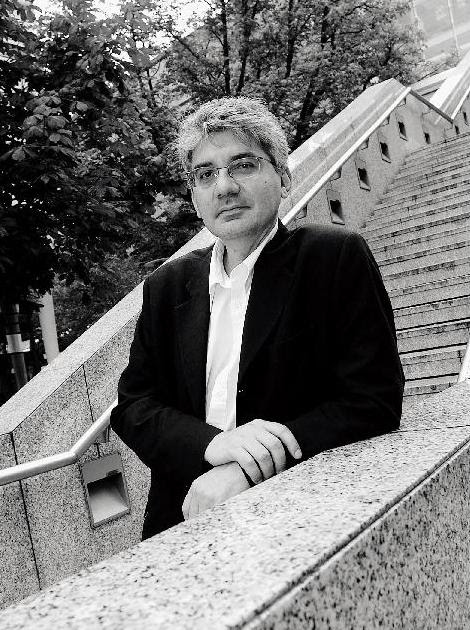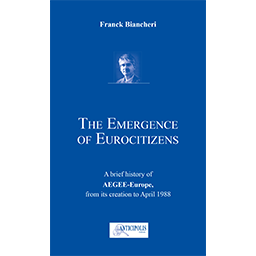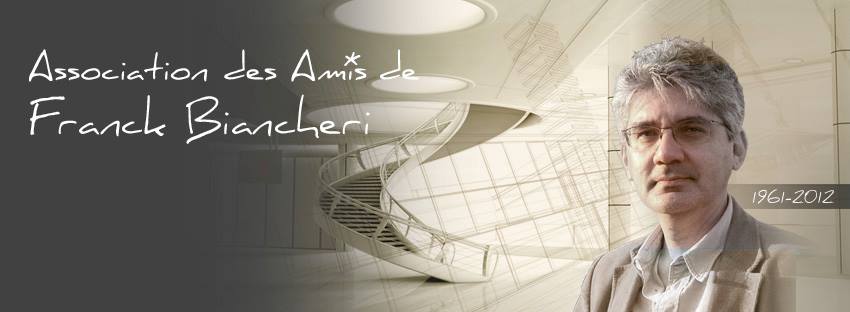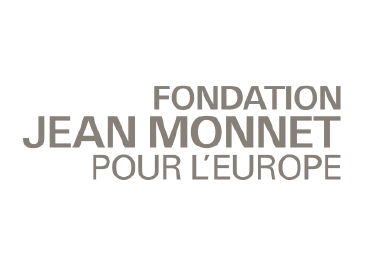On 7 February 2018, the European Parliament, while the proposal was on the table, did not vote for the establishment of transnational lists and rejected any reflection on the creation of a single European constituency for the 2019 European elections and beyond. The national parties that occupy the European Parliament, convinced that the “alliances” by political family that they form in the European Parliament are sufficient to express the European voice of the citizens, don’t want revolutionizing the European democratization, which risks in particular cost them seats. They have even allocated the 73 British seats that should be released in 2019 with Brexit, even if they have acted for an effective reduction in the number of MEPs (see EP decision Composition of the European Parliament, 07/02/2018). However, as Franck Biancheri wrote in 2004: “National political parties can no longer assume the democratic responsibility of the European election. Their illusory attempts to form alliances between parties of the same political family is only an expression of their awareness that they can not deliver an understandable and credible speech to citizens in the European elections.”
Since 2004 democratisation in Europe lost its time. But with the emergence of transeuropean lists, like DiEM25, European Greens, the Federalists, …, hopefully 2019 European election, ten years after the expectations of Franck Biancheri, will perhaps not remain a “tourist class” election, and show that the citizens are the reformers.
[divider]
Franck Biancheri, 13.05.2004 – Last Sunday, Europe Day, the Committee for the Defense of the Armenian Cause (CDCA) organized in Lyon a very large conference gathering the heads of lists in the European elections for the (french) Greater South-East region, around a question for the future of Europe: Turkey’s possible entry into the EU. Believing that Europe 2020 could help illuminate this complex debate, the organizers also invited me to intervene. With more than a thousand participants on a Sunday afternoon, the subject has shown that it is mobilizing and that citizens can be interested in the European debate … provided that it deals with what interests them.
The debate was particularly lively and the room very expressive of his convictions and opinions. However, and despite the quality of the speakers of the different political parties, I could not help but notice (and say at the end of this demonstration) how the absence of true trans-European parties completely distorted the democratic exercise that should be the election to the European Parliament.
First of all, most of the political leaders who are candidates in these elections (and I am talking here about all 25 member states) are unable to use this electoral opportunity as a vast pedagogy of Europe and Europeans: everyone speaks only of what he knows and what they know is national or regional politics; so they do not speak, explain, or make understandable the complexity of European political construction and its immense potential for action. At best, for those who have already been elected MEPs, they give some information about the functioning process of the European Parliament, but nothing more. Nothing about the political forces at work in the 25 countries, nothing about the expectations of the citizens of the 24 other Member States, nothing about the conditions of effectiveness of their own action within such a vast and diverse group.
We even see good-faith demonstrations that can only convince the average citizen that the European election is really an electoral “foolery”, and the European Parliament a “diversion” of democratic legitimacy. And this is all the more serious as these demonstrations are made in front of citizens motivated by European political themes such as, here, the possible entry of Turkey into the EU.
Here are some examples of this false community democracy in action, last Sunday in Lyon:
- a politician explains that citizens should be interested in the constitution rather than in Turkey to decide their vote in the next European elections! In addition to being false, since the Constitution will give rise in time and to many referendums (and we still do not know what it will contain in fine, while the Parliament can if it wants to block or not the possible entry of Turkey), the citizens present did not fail to react loudly to the fact that the “elites” explain to them what “must” interest them or not in an election! Curious concept of “top-down” democracy that reflects the current community political system.
- several “heads of the list”, spurred by the organizers, obliged to explain in a confusing way that although they are themselves in favor of the recognition of the Armenian Genocide by Turkey, the European political group to which they belong in Strasbourg has actually vote against! Understand who can … and especially what the elector must do in the face of “so-called” European parties, each of whose national components develop their own opinions that are often contradictory to each other. Vote for what the leftist, right-wing, eco-friendly candidate says in your country … and tomorrow you will discover at European level that his “European party” will decide the opposite! Where is democracy in this process?
- a “head of the list” asserting that there is no “European people” while welcoming the fact that Europeans are increasingly refusing bureaucratic management of the EU. Look for the paradox!
We could continue this way for a long time. There is no question here of the honesty or the motivation of the policies concerned. But on the other hand a brutal statement: the national political parties can no longer assume the democratic responsibility of the European election. Their illusory attempts to form alliances between parties of the same political family is only an expression of their awareness that they can not deliver an understandable and credible speech to citizens in the European elections. But people are not fooled and perceive that behind the press conferences on a European flag, there is a void of common political vision, operational program and political staff to the size of the continent.
Let us risk a prognosis: the 2004 European election will be the last when the national parties will have the monopoly of the political offer; by 2009, we can expect the emergence of two or three new trans-European political forces, totally disconnected from national and regional political issues, and focused only on the European dimension of the challenges common to the whole continent.
There is no doubt that Europeans are waiting with increasing impatience to finally be able to express themselves as first-class European citizens and no longer only as European citizens of “tourist class”, the same as those elected at present in Strasbourg!
Franck Biancheri, 13.05.2004 – Translated from: Sans vrais partis trans-européens, l’élection européenne se fait en « classe touriste » (french) © FB Documentation 2018
[divider]
More articles:
[divider]
Le 7 février 2018, le Parlement européen, alors que la proposition était sur la table, n’a pas voté l’instauration de listes transnationales et a rejeté toute réflexion sur la création d’une circonscription unique électorale européenne pour les élections européennes 2019 et au delà. Les partis nationaux qui occupent le parlement européen, persuadés que les “alliances” par famille politique qu’ils forment au sein du Parlement européen sont suffisantes pour exprimer la voix européenne des citoyens, se sont gardés de révolutionner la démocratisation européenne, qui risque notamment de leur coûter des sièges. Ils se sont même alloués les 73 sièges britanniques qui devraient se libérer en 2019 avec le Brexit, et ce même s’ils ont acté pour une réduction effective du nombre des parlementaires européens (cf décision du PE Composition du Parlement européen, 07/02/2018). Or, comme l’écrivait Franck Biancheri en 2004: “les partis politiques nationaux ne peuvent plus assumer la responsabilité démocratique de l’élection européenne. Leurs tentatives illusoires de former des alliances entre partis de même famille politique n’est que l’expression de leur prise de conscience qu’ils n’arrivent pas à tenir un discours compréhensible et crédible aux citoyens lors des élections européennes.“
Depuis 2004, la démocratisation en Europe a perdu beaucoup de temps. Mais souhaitons qu’avec l’émergence de listes transeuropéennes, comme DiEM25, les Verts européens, les Fédéralistes, … l’élection européenne de 2019, dix ans après les espoirs de Franck Biancheri, ne restera pas une élection de “classe touriste” et montre que les citoyens sont les réformateurs.
[divider]
Franck Biancheri, 13.05.2004 – Dimanche dernier, Journée de l’Europe, le Comité pour la Défense de la Cause Arménienne (CDCA) a organisé à Lyon une très grande conférence rassemblant les têtes de listes aux élections européennes pour la région Grand Sud-Est, autour d’une question-clé pour l’avenir de l’Europe : l’éventuelle entrée de la Turquie dans l’UE. Estimant qu’Europe 2020 pouvait aider à éclairer ce débat complexe, les organisateurs m’avaient inviter également à intervenir. Avec plus de mille participants un Dimanche après-midi, le sujet a montré qu’il était mobilisateur et que les citoyens peuvent être intéressés par le débat européen … à condition qu’il traite de ce qui les intéresse.
Le débat fut particulièrement animé et la salle très expressive de ses convictions et opinions. Pourtant, et malgré la qualité des intervenants des différents partis politiques, je n’ai pu m’empêcher de constater (et de dire en conclusion de cette manifestation) combien l’absence de vrais partis trans-européens dénaturait complètement l’exercice démocratique que devrait être l’élection au Parlement européen.
Tout d’abord, la plupart des responsables politiques candidats dans ces élections (et je parle ici de l’ensemble des 25 Etats-membres) sont incapables d’utiliser cette occasion électorale comme une vaste pédagogie de l’Europe et des Européens : chacun ne parle que de ce qu’il connaît et ce qu’ils connaissent c’est la politique nationale ou régionale ; donc ils ne parlent pas, n’expliquent pas, ne rendent pas compréhensible la complexité de la construction politique européenne et son immense potentiel d’action. Au mieux, pour ceux qui ont déjà été élus européens, ils donnent quelques informations sur le processus de fonctionnement du Parlement européen, mais rien de plus. Rien sur les forces politiques à l’œuvre dans les 25 pays, rien sur les attentes des citoyens des 24 autres Etats-Membres, rien sur les conditions d’efficacité de leur propre action au sein d’un ensemble aussi vaste et divers.
On assiste même à des démonstrations de bonne foi qui ne peuvent que convaincre le citoyen moyen que l’élection européenne est vraiment une «pitrerie» électorale, et le Parlement européen un «détournement» de légitimité démocratique. Et cela est d’autant plus grave que ces démonstrations se font devant des citoyens motivés par des thèmes politiques européens comme, ici, l’entrée éventuelle de la Turquie dans l’UE.
Voici quelques exemples de cette fausse démocratie communautaire en action, Dimanche dernier à Lyon :
- un responsable politique expliquant que les citoyens devraient s’intéresser à la constitution plutôt qu’à la Turquie pour décider de leur vote aux prochaines élections européennes ! Outre que c’est faux, puisque la Constitution donnera lieu en temps et en heures à de nombreux référendums (et qu’on ne sait toujours pas ce qu’elle contiendra in fine ; alors que le Parlement pourra s’il le veut bloquer ou non l’entrée éventuelle de la Turquie), les citoyens présents n’ont pas manqué de réagir bruyamment au fait que les « élites » leur expliquent ce qui «doit» les intéresser ou pas dans une élection ! Curieux concept de démocratie « top-down » qui reflète bien l’actuel système politique communautaire.
- plusieurs « têtes de liste », aiguillonnés par les organisateurs, obligés d’expliquer de manière confuse que bien qu’ils soient eux-mêmes en faveur de la reconnaissance du génocide arménien par la Turquie, le groupe politique européen auquel ils appartiennent à Strasbourg a en fait voter contre ! Comprenne qui pourra … et surtout que doit faire l’électeur face à des « soi-disants » partis européens dont chaque composante nationale développe des opinions propres qui sont souvent contradictoires entre-elles. Votez pour ce que dit le candidat de gauche, de droite, écolo dans votre pays … et vous découvrirez demain au niveau européen que son « parti européen » décidera le contraire ! Où est la démocratie dans ce processus ?
- une « tête de liste » affirmant qu’il n’existe pas de « peuple européen » tout en se félicitant que les Européens refusent de plus en plus une gestion bureaucratique de l’UE. Cherchez le paradoxe !
On pourrait continuer ainsi longuement. Nulle mise en cause ici de l’honnêteté ou de la motivation des politiques concernés. Mais en revanche un constat brutal : les partis politiques nationaux ne peuvent plus assumer la responsabilité démocratique de l’élection européenne. Leurs tentatives illusoires de former des alliances entre partis de même famille politique n’est que l’expression de leur prise de conscience qu’ils n’arrivent pas à tenir un discours compréhensible et crédible aux citoyens lors des élections européennes. Mais les gens ne sont pas dupes et perçoivent bien que derrière les conférences de presse sur fond de drapeau européen, il y a un vide de vision politique commune, de programme opérationnel et de personnel politique à la taille du continent.
Risquons nous à un pronostic : l’élection européenne de 2004 sera la dernière où les partis nationaux auront le monopole de l’offre politique; d’ici 2009, il faut s’attendre à l’émergence de deux ou trois nouvelles forces politiques trans-européennes, totalement déconnectées des enjeux politiques nationaux et régionaux, et focalisées uniquement sur la dimension européenne des défis communs à tout le continent.
Nul doute que les Européens attendent avec une impatience croissante de pouvoir enfin s’exprimer en tant que citoyens européens de première classe et non plus seulement en tant que citoyens européens de « classe touriste », la même que celle des élus envoyés actuellement à Strasbourg!
Franck Biancheri, 13.05.2004 – Sans vrais partis trans-européens, l’élection européenne se fait en « classe touriste » © FB Documentation 2018
[divider]
Visitez le centre de documentation !
[divider]






